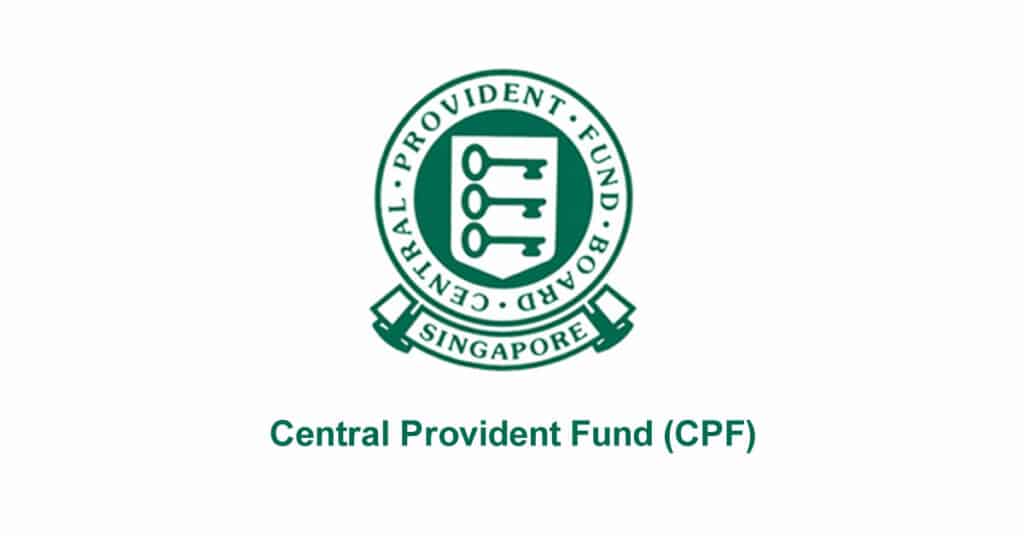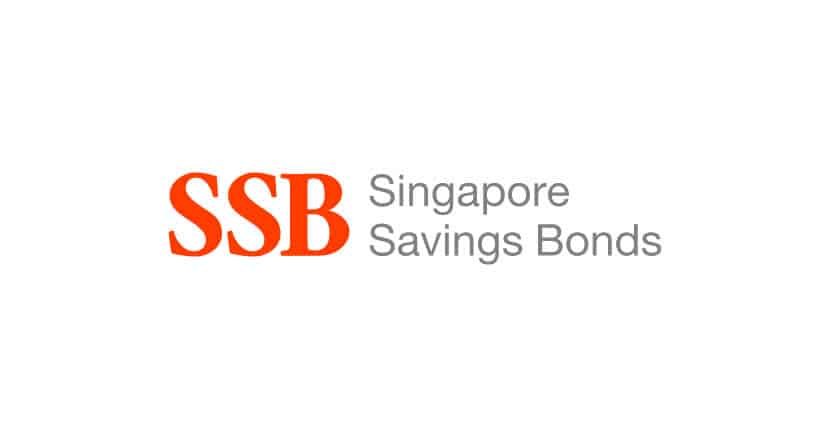13 Best Investment Options In Singapore
If you are looking to invest as an expat or high-net-worth individual, which is what I specialize in, you can email me (advice@adamfayed.com) or use WhatsApp (+44-7393-450-837).
Table of Contents
Introduction
Investing in one of the best investment options in Singapore can be meticulous.
When done right, investing may help us increase our wealth, hedge against the risk of inflation, and even generate a reliable source of passive income (so important in the uncertain times we live in).
However, it can be challenging to know where to begin with the plethora of investment plans and products available. However, just like while observing the markets, the wisdom of the crowd directs us in the proper path.
So, let’s take a look at the 13 best investment options in Singapore.
13 Best Investment Options in Singapore
1. Singapore Government Treasury Bills (T-Bills)
T-bills are one of the best investment options in Singapore.
The returns that Singapore’s government, one of the few triple-A-rated countries in the world today, pays on its 6-month or 1-year treasury bills serve as a good proxy for the country’s risk-free rate.
The shortest-term government securities on the market are known as Treasury bills or T-bills.
The most recent 6-month T-bill issuance in August 2022 had an average yield of 2.28% annually. The most recent 12-month T-bills were made available in July and carried a slightly higher interest rate of 2.82%.
For investors searching for relatively short-term investments of six months to a year without taking on significant investment risk, Treasury bills are frequently helpful.
2. CPF Investment Scheme
The CPF Investment Scheme (CPFIS) enables you to utilize your CPF funds to invest in a variety of products, including insurance products, unit trusts, fixed deposits, bonds, and shares. It may be the most well-known investment program among Singaporeans.
You may basically choose between two plans, each of which has a different source of funding and a different range of investment options.
CPFIS-OA
- Source of Funds: OA balance, less first S$20,000
- Allowed Investment Products: ILPs, Unit trusts, Singapore Government Bonds, ETFs, T-bills, Fund Management Accounts
- Restrictions: Must first set aside S$20,000; 35% of the investible balance for shares, property funds and corporate bonds; 10% of the investible balance for gold and gold products
CPFIS-SA
- Source of Funds: SA balance, less first S$40,000
- Allowed Investment Products: Unit trusts, ILPs, Singapore Government Bonds, T-bills; Excludes products deemed high risk
- Restrictions: Must first set aside S$40,000; Investment in shares, property funds, corporate bonds, gold and gold products not allowed
Finally, if you’re not seeing returns that are significantly greater than the CPF OA or SA default interest rates of 2.5% and 5%, respectively, you may be better off leaving your CPF funds alone for consistent and risk-free growth.

3. Savings Accounts
While that basic savings account you’ve had since you were young earns you almost zero interest—0.05% annually—it offers two advantages.
First, in order to be able to withdraw or deposit funds almost immediately, you need to keep some emergency savings in these accounts. Because the occurrence will be unexpected, this is essential in emergencies. Waiting a week to access money designated for emergencies is not something you would want to do.
Second, even if retirement is still a ways off, you won’t need liquidity then; instead, you’ll need it once you’ve achieved or passed the retirement age. For daily expenses, you’ll need to have some money in such a savings account. Additionally, it could be a good idea to convert some volatile assets to non-volatile ones at this time.
Recently, multiplier/tiered structures have been added to high-return interest accounts. It’s a smart marketing tactic to encourage you to interact with the bank more, whether that means making a particular amount of purchases, utilizing the account to deposit paychecks, etc.
Savings accounts are the best investment options in Singapore because they can offer greater interest rates, but you shouldn’t get too enamoured with them because they could distract you from the bigger picture: earning more while spending less.
Such tariffs are typically “promotional” and have recently undergone a significant lower revision.
You shouldn’t keep the majority of your money in a savings account due to opportunity costs.
4. Supplementary Retirement Scheme
The Supplementary Retirement Scheme (SRS) is one of the best investment options in Singapore. It is a voluntary contribution scheme that allows you to save additional money for retirement in addition to your usual CPF payments.
You can now deposit up to S$15,300 each year into your SRS account. Why would you do this? Of course, you can obtain some tax relief on your personal income, which might reduce the amount you have to pay.
Your SRS account, on the other hand, earns a pittance of 0.05% every year, which is regarded in financial circles as “peanuts.” More importantly, leaving your SRS funds dormant causes you to lose money because of inflation.
The strategy for SRS funds is straightforward. Investing is the better option because even low-interest investments, such as bonds, provide a higher interest rate.
You can use your SRS account to invest in a variety of products, including:
- Bonds
- Singapore Government Securities/Singapore Savings Bonds
- Fixed Deposits (Local and foreign currencies)
- Shares
- Unit trusts
- Insurance plans (single premium)
5. Fixed Deposits (and Short-Term Insurance Savings Plans)
The majority of us are familiar with what a fixed deposit is.
Banks promise to pay you interest on the principal amount of the deposit you made with them. The principal amount and the length of time you want to deposit money with them determine the interest rate you can receive.
Higher interest would be paid with a longer term and larger principal amount.
Such fixed deposits carry little risk as you may typically cancel them at any moment and are unlikely to lose your capital. This makes fixed deposits as best investment options in Singapore.
However, the interests might not be as appealing now.
New insurance plan types that resemble fixed deposits and savings accounts have been introduced to the market recently.
If you leave it for a set period of time, they may offer somewhat greater interest than the bank, depending on the plan (like a fixed deposit).
or greater income than a savings account while still enabling withdrawal and deposit options (like a savings account).
These choices are excellent places to save your emergency savings.
But keep in mind that these are designed to be alluring in order to attract new users. In the future, corporations might lower these charges.
Additionally, they can carry “reinvestment risk.”
6. Bonds
Bonds may be issued by organizations or governments looking to raise capital.
In essence, you’re “lending” them money by purchasing the bonds, and in return, they often pay out coupons (interests).
The ability of the bond issuer to pay the specified coupons and the principal when they are due is a crucial factor to take into account when wanting to purchase bonds, and this is mostly reflected in the credit ratings.
A corporation or government can borrow money at a lesser cost if it has a strong credit rating compared to one with a negative one, and vice versa.
These methods can be used to buy bonds:
- Individual bonds from SGX
- Bond ETF funds
- Bond unit trusts
Despite the possibility of swings, these assets are typically less erratic than stocks and shares. That is why it is one of the best investment options in Singapore.
The Singapore Savings Bond (SSB), which is a component of the Singapore Government Securities (SGS), a collection of different government bonds and bills, is another option.
When you purchase an SSB, you may get interest payments for up to 10 years. You are free to withdraw the principal at any moment and without incurring any fees.
Holding it for the full 10 years makes financial sense; to see why, have a look at the average annual return in the 10th year column (0.90%).
SSB, though, could no longer be as glamorous.
The rates will vary when fresh bonds are issued each month. Additionally, rates have been declining.
In December 2018, the 10-year average p.a. return was 2.57%.
Additionally, there is a “reinvestment risk”.
In essence, you would be aware of when you needed money, which would be for retirement income during your retirement years.
That would have indicated that you didn’t actually need liquidity or short-term solutions because they bring a new problem; once these solutions mature, you’d need to find equivalent or superior alternatives.
Consider longer-term solutions if at all possible because they can fetch better rates that can be “locked in.”
7. Singapore Savings Bonds
Singapore Savings Bonds (SSBs) are another popular and best investment options in Singapore that is sought after as a source of consistent, if not spectacular, returns.
First, what exactly is a bond? In layman’s words, a bond is issued by an entity to generate funds from the public, with the commitment to repay the face amount of the bond on a given date while making interest payments at fixed intervals.
Bond stability is thus dependent on the issuer’s pedigree. If the bond issuer is a shady fly-by-night operation that primarily deals in beach sandcastles, you would be hesitant to lend them your money.
The Singapore Government, which has a solid reputation, is the issuer of SSBs. As a result, SSBs are widely regarded as a reliable and popular investment.
While SSBs are trustworthy, they are unlikely to make you wealthy on their own. Recent tranches offer average annual returns of roughly 1% if held for the full ten years until maturity.
SSBs should be used to retain large sums of money that you want to guard against inflationary erosion due to their gradual and steady nature. (And when you’re approaching or in retirement, you typically follow this “preservation” viewpoint.)
While a return rate of less than 1% won’t exactly excite investors, it is adequate given that the inflation rate between 2017 and 2019 was less than 0.6%.

8. Singapore Government Bonds
The Singaporean government also offers bonds with terms ranging from two to thirty years. These bonds often provide larger returns than their treasury bills, which are shorter-term.
A bond with a longer maturity time is often thought to have more risks than a bond with a shorter maturity period, all else being equal.
But it is also thought to be nearly risk-free, offering a rate of return that is comparable to that of a risk-free investment.
To fund important long-term infrastructure projects, including new railway lines, coastline protection projects, and other infrastructure projects that will benefit both present and future generations of Singaporeans, the government issued the first tranche of its SINGA bonds in September 2021.
The Singapore Government Securities (SGS) bonds are referred to as SINGA bonds. A 30-year SINGA bond issued in September 2021 had an average yield of 1.84%.
In August, the company also introduced a 50-year Green SGS bond with a 3.04% annual interest rate.
These are the rates Singapore Government Bonds should be paying, according to the Yield Curve shown on the MAS website. The yield would increase as the bond’s duration grew longer. In addition, the yield on 2-year government bonds is higher than that on 6-month T-bills (and should also be higher than the 1-year T-bills).
9. Retirement Plans (Annuities)
A retirement annuity plan’s main objective is to provide retirement income for a predetermined amount of time, beginning at the chosen retirement age.
It can be funded either as a single lump sum or on an annual basis for a set period of time.
Such plans are appealing because they let you invest in both promised and unguaranteed returns.
The majority of these plans provide capital guarantees when they mature. Meaning that your capital is protected as long as you have paid the required premiums and maintained the plan during the whole policy term.
The following income can be received if you opt to contribute a lump sum of $98,355.25 to the plan when you are 40 years old:
- Guaranteed monthly income: $1,550
- Non-guaranteed monthly income: $1,180.18 (illustrated @ 4.75% investment returns)
- Total monthly income: $2,730.18 (guaranteed + non-guaranteed)
- Total income received: $327,621.6
- Total premium paid: $98,355.25
So, as you can see, if you commit to the annuity plan for a longer period of time, it may be able to provide you with respectable returns. The downside risk might be greatly decreased at the same time. It can also be funded regularly rather than everything at once, and it is customizable to your needs.
This is the primary disadvantage:
These programs are designed for long-term dedication. If you choose to withdraw from or surrender the plan before it matures, you run the risk of losing money and maybe getting back less than you invested.
So be aware of the risks and avoid over-committing.
However, since retirement is the last and least important financial goal that the majority of people have, there shouldn’t be much cause for concern if you’ve done proper retirement planning, including setting aside emergency funds, projecting how much you’ll need, and have taken care of other financial goals.
10. Real Estate Investment Trusts
Real Estate Investment Trusts (REITs) may be of interest to you. They are the best investment options in Singapore if you enjoy the thought of owning a portion of Singapore’s gleaming cityscape.
A REIT is essentially a professionally run fund that collects money from thousands of individual investors and uses it to invest in real estate.
The way REITs work varies. Some concentrate on creating business properties, including retail centres. In contrast, other people want to purchase real estate to rent to renters and generate rental income.
REITs are becoming increasingly popular among investors due to their ability to generate both growth and consistent income. Consider a popular shopping mall that gains value as it continues to attract and retain high-paying tenants.
As a result, REITs have an undeniably important role in many investment portfolios. In general, you should invest more in REITs as you build your money. When shifting your focus to wealth preservation, you should keep REITs that pay consistent dividends.
11. Exchange-traded Funds (ETFs)
Without having to purchase individual stocks and shares, investors can invest in a portfolio of assets using exchange-traded funds (ETFs). Professional trading companies combine these “baskets” into funds and sell shares of the funds to individual investors.
You might think of ETFs as a “shortcut” to investing in a certain market because they typically seek to duplicate the performance of an index. For instance, the performance of Singapore’s top 30 listed firms is tracked by the Straits Times Index (STI).
So, you can invest in all 30 firms without owning their stocks separately by purchasing an ETF that tracks the STI, such as the SPDR STI ETF or the Nikko AM STI ETF.
You hold shares of an ETF but not the underlying assets, which could be any mix of stocks, shares, commodities, or other securities, including derivatives, when you invest in an ETF.
ETFs give investors a high degree of diversification because they may be built from a variety of assets and sectors.
As a result, you ought to include ETFs in your portfolio to lower the risks associated with having too much exposure to a certain market. If you have high costs, adding additional ETFs will help you pay less. ETFs also have lower fees than alternative assets like unit trusts.
12. Robo-advisors
The newest investment term, “robo-advisors,” is a clever way of saying that you are using computers to direct your investments rather than depending on the conventional wisdom of human specialists.
Robotic advisors are the best investment options in Singapore because they can handle a variety of investments. As an alternative, they often use a variety of exchange-traded funds from a variety of asset classes to build your investing portfolio.
Your financial objectives typically serve as the basis for their investing approach; simply state your objectives to a Robo-advisor, and they will make investment recommendations in line with them.
In this sense, Robo-advisors make investing simple for beginners or individuals with little to no investment experience. They also have lower prices and a less convoluted fee structure, which should appeal to inexperienced clients.
Robo-advisors are ideal for investors who don’t want to have to think too hard about their assets. They also work well with ongoing money injections.
If you’re not sure which one to go with, try dividing your investment budget between two or three Robo-advisers you think will work for you. Then, after 6 months or a year, see which one did the best.

13. Stocks
Stocks are the first investment that grants credibility and it one of the best investment options in Singapore.
Stocks or shares, as they are traded on the stock exchange, essentially represent an ownership stake in a corporation. When you sell your stock for more than you paid for it when you bought it, you make money through capital gains.
Although it seems simple, how do you predict when your stocks will increase? The height, too? It is nerve-wracking to attempt to follow the chaotic course of an average trading day.
Another barrier to entry is that since stocks are normally traded in lots of 100, investing in a high-performing stock like Apple Inc. (USD$123.24 per stock at the time of writing) can need a sizable initial investment.
To create a passive income stream instead, you may invest in equities that offer dividend yields.
Even though it might be challenging to choose successful stocks, they can be valuable for a variety of things.
For instance, a portfolio of stocks in rapidly expanding fintech businesses can deliver eye-catching short-term profits. On the other hand, adding time-tested equities to a portfolio that is heavily weighted in commodities can serve as a counterbalance.
Your chances of success can be increased by subscribing to professional stock tips or learning from experienced traders, but there is no substitute for hard-earned expertise, a keen instinct, and occasionally just plain dumb luck.
Final Thoughts
Once you’ve established a base or begun your investing journey with any of the best investment options in Singapore, you’ll have the confidence and expertise to make riskier bets.
You may earn a larger return on your extra money while maintaining a high level of liquidity with riskier but still generally safe assets like cash management accounts.
Stocks, real estate, and other alternative investments like gold or even wine may emerge as investment options that can yield significantly higher returns as you advance in your investing career and come to understand that taking calculated risks over the long term can be financially rewarding.
This does not imply that you should cease making wise investment decisions. Contrary to popular belief, you should be even more cautious while making risky investments.
Many of these riskier assets are unpredictable, so if you want to see strong returns over the long term, you’ll need to be prepared to withstand and ride out some occasionally wildly fluctuating price fluctuations.
Pained by financial indecision? Want to invest with Adam?

Adam is an internationally recognised author on financial matters, with over 760.2 million answer views on Quora.com, a widely sold book on Amazon, and a contributor on Forbes.



